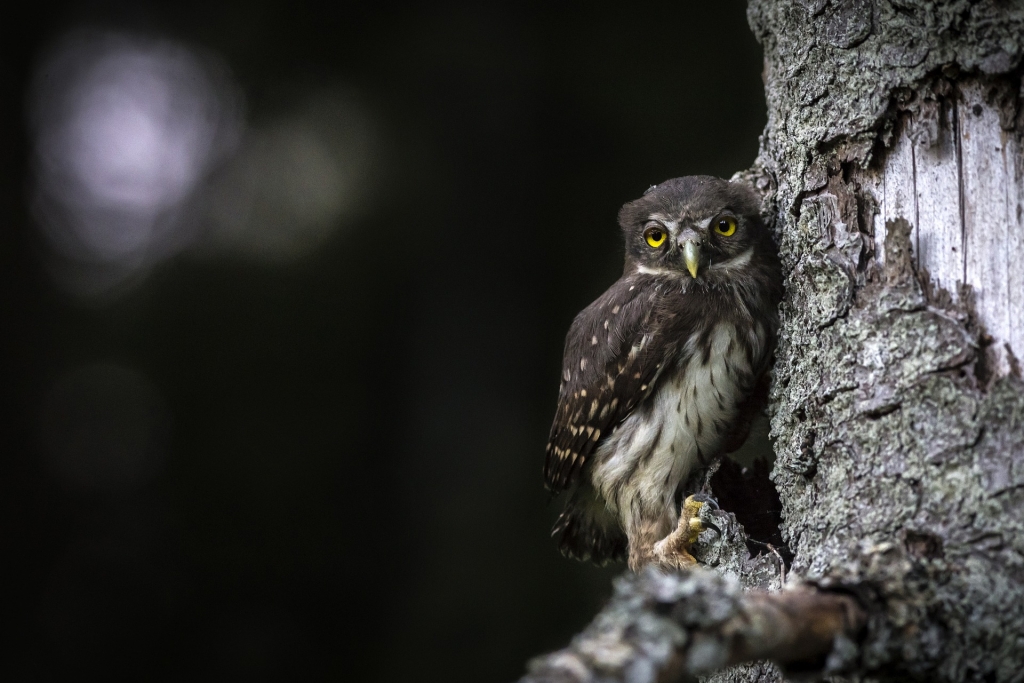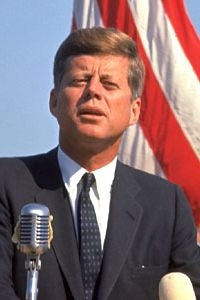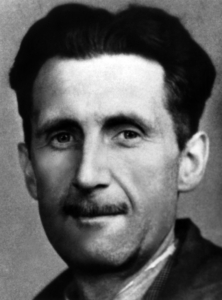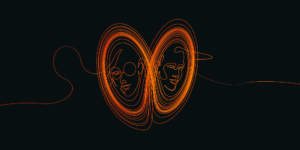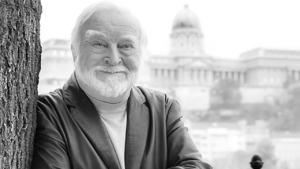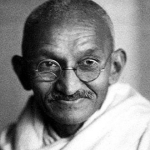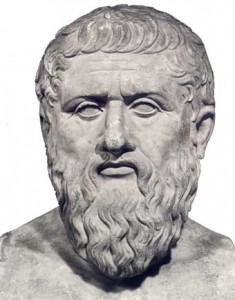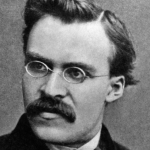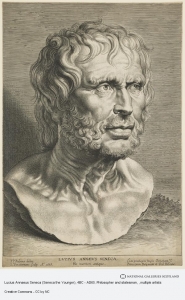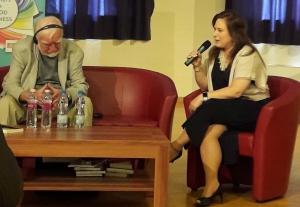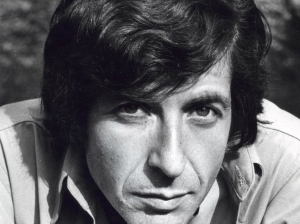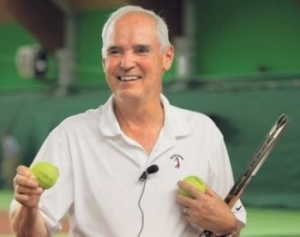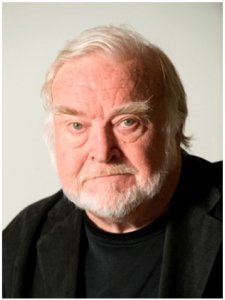J. F. Kennedy (1917-1963)
“…The men who create power make an indispensable contribution to the nation’s greatness, but the men who question power make a contribution just as indispensable …for they determine whether we use power or power uses us.”
George Orwell novelist (1903-1950)
“In a time of unreal deceit, telling the truth is a revolutionary act.”
Hans F. Hofmann theologist/psychologist (1923-2007)
“Sigmund Freud at the beginning of his career thought of the irrational aspects of the human personality as chaotic and potentially dangerous powers… It did not occur to him that chaos in itself may represent a very positive and fertile current of life. For the people of the Old Testament, especially in the creation story, the question was not: ‘Why is there chaos?’ but rather: ‘Why is there order?’ For them, order was the outgrowth of daily living… The unique function of man, in their view, is to live in close, creative touch with chaos, and thereby experience the birth of order… Surprisingly enough, modern psychotherapists share this ancient knowledge.”.
Mihály Csíkszentmihályi psychologist (1934-2021)
“The normal condition of the mind is chaos. Only when involved in goal-directed activity does it acquire order and positive moods. The growth of the self occurs only if the interaction – whether it’s with another person, a mountain or a piece of music – is an enjoyable one, that is, if it offers nontrivial opportunities for action and requires a constant perfection of skills“.
Picasso (1881-1973)
“Everything you can imagine is real”.
Nietzsche, German philosopher (1844-1900)
“He who is not a bird should not build his nest over abysses”.
Ghandi (1869-1948)
“I must follow my people for I am their leader”.
Dietrich Bonhoeffer, German theologian, anti-Nazi dissident (1906-1945)
“Silence In the face of evil is itself evil: God will not hold us guiltless. Not to speak is to speak. Not to act is to act”.
Plato, Greek philosopher (428 bc-348 bc)
“Only those who do not seek power are qualified to hold it”.
Nietzsche, German philosopher (1844-1900)
“He who fights with monsters might take care lest he thereby become a monster. And if you gaze for long into an abyss, the abyss gazes also into you”.
Seneca, Greek philosopher (4 bc-65 Ac)
“As is a tale, so is life: not how long it is, but how good it is, is what matters”.
Mihály Csíkszentmihályi psychologist (1934-2021) with Judit Polgár chess champion, in 2018
Ms Polgar asked: “How to inspire my kids to do good things? What daily portion of flow is needed for them?”
“Expose the child to as many things as you can in life (music, sport, science) and observe what they want to explore more, helping them develop their skills. Teach them the gift of learning. In evolution animals have survived because they do things they are good at. Children want to learn to be better at things: it’s in their genes”.
Viktor E. Frankl Austrian psychotherapist (1905 — 1997)
It does in no way matter what we expect from life, but rather what life expects from us.”
Carl Gustav Jung Swiss psychotherapist (1875 — 1961)
Leonard Cohen Canadian poet (1934 — 2016)
“there is a crack in everything that you can put together: Physical objects, mental objects, constructions of any kind. But that’s where the light gets in, and that’s where the resurrection is and that’s where the return, that’s where the repentance is. It is with the confrontation, with the brokenness of things.”
Timothy Gallwey, tennis & business coach (b. 1938)
Focus is not about trying to force focus, nor does it mean thinking hard about something. Natural focus occurs when the mind is interested, then the mind is drawn irresistibly toward the object or subject of interest. It is effortless and relaxed, not tense and overly controlled. Relaxed concentration is the supreme art because no art can be achieved without it. Every time your mind starts to leak away from the present, simply bring it gently back.” (from Inner game of tennis)
Kierkegaard, Danish philosopher (1813 — 1855)
.”
Mihály Csíkszentmihályi psychologist (1934-2021)
“
Carl Gustav Jung Swiss psychotherapist (1875 — 1961)
Music expresses in sounds what fantasies and visions express in in visual images. I am not a musician and would not be able to develop these ideas for you in detail. I can only draw your attention to the fact that music represents the movement, development, and transformation of motifs of the collective unconscious. In Wagner this is very clear, and also in Beethoven. (Letters Vol 1)”


